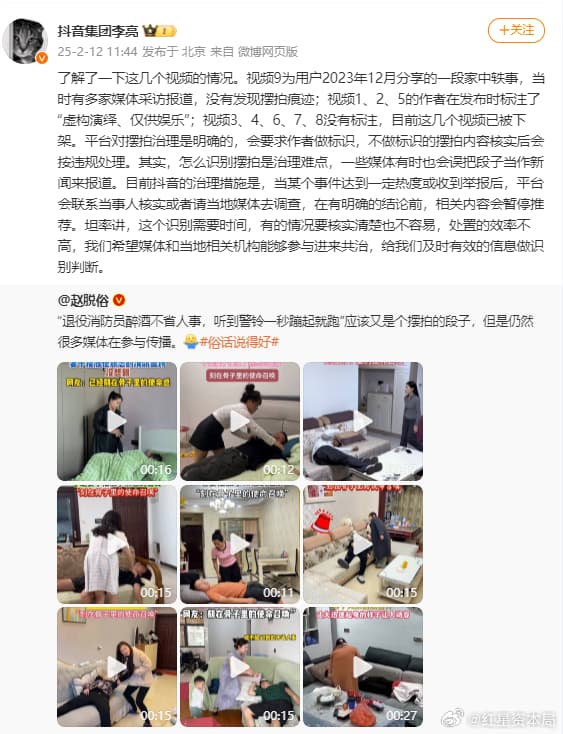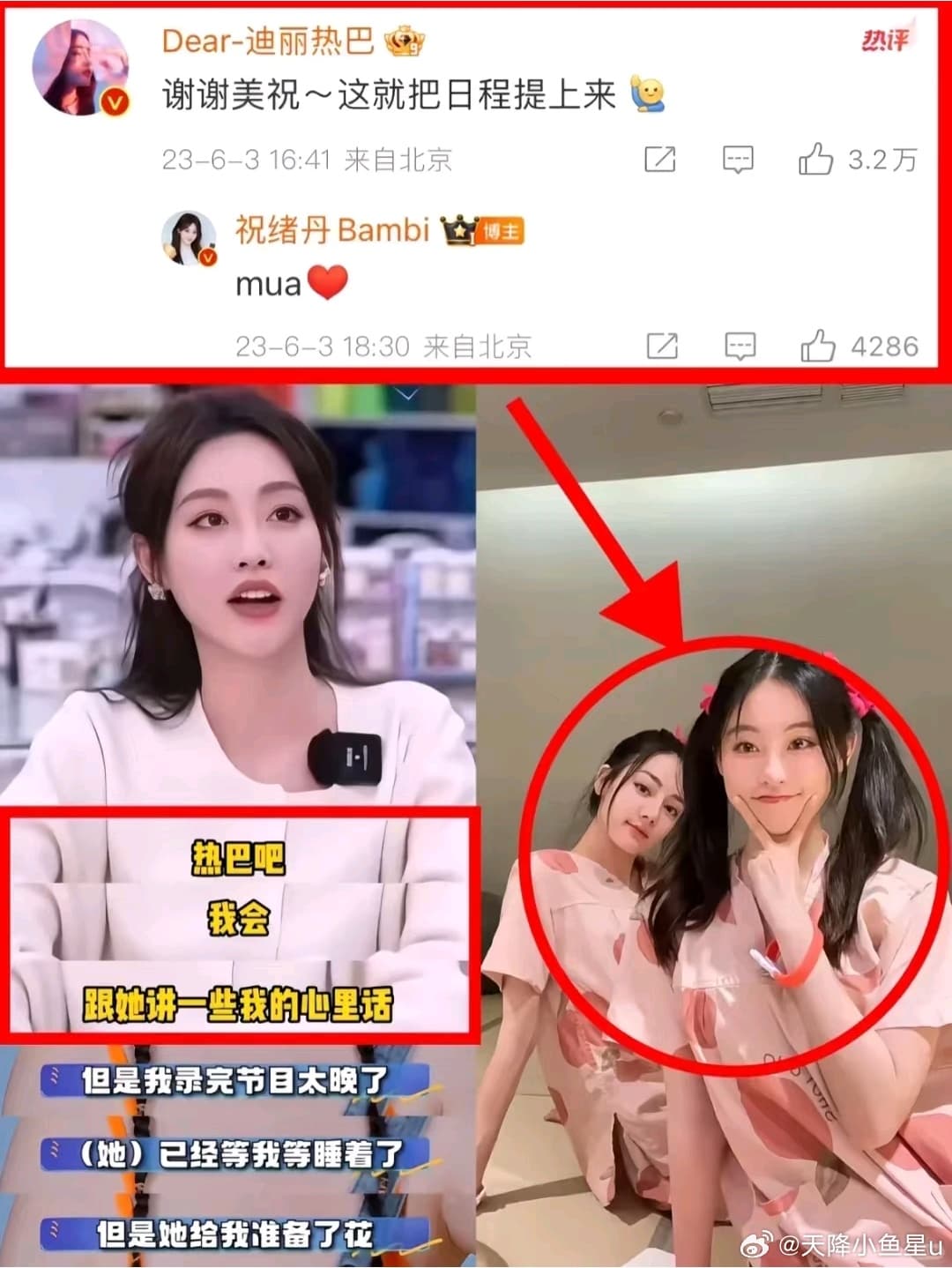Douyin Vice President Addresses Staged Video Chaos on TikTok's Chinese Counterpart
In response to the recent "摆拍" (staged or faked) video chaos on Douyin, the Chinese version of TikTok, the company's vice president, Li Liang, has spoken out. Li stated that the platform's stance on regulating staged content is clear: authors will be required to label their videos as such, and those that fail to do so will be subject to disciplinary action after verification. However, he later clarified that Douyin will not require users to add a label or identification to their videos indicating if they are staged or not. Instead, after verifying if a video is indeed staged, the platform will handle it according to their rules regarding violations.

13 February 2025
Li acknowledged that identifying staged content is a challenging task, as some media outlets have mistakenly reported on such videos as if they were real news. He explained that Douyin's current measures include contacting the parties involved in a viral incident or asking local media to investigate, and suspending the promotion of related content until a clear conclusion is reached. The process of verification requires time and can be difficult, resulting in low efficiency. He hopes that media outlets and local authorities can collaborate with the platform to provide timely and effective information to aid in making judgments.
This statement comes as part of Douyin's efforts to improve its content governance and transparency. The company has been working to increase awareness about its algorithms and has announced plans to make its platform governance more transparent. Li has also discussed the need to strengthen the identification and crackdown on rumors and online violence, which is a major challenge for the platform. In recent months, Douyin has taken steps to address these issues, including suspending or banning accounts that violate its rules. The company has also encouraged users to report suspicious content and has implemented measures to prevent the spread of misinformation.
The issue of staged videos on Douyin has been a growing concern in recent years, with numerous cases of fake or misleading content going viral and causing significant disruption to society. The lack of clear regulations and effective moderation has led to a surge in such content, leaving many users frustrated and confused. A recent controversy surrounding Chinese actress Cui Manli has sparked a heated debate online, highlighting the complexities of the online ecosystem and the potential consequences of one's words and actions. The incident has also raised concerns about the responsibility of social media influencers and the spread of misinformation online.
As the platform continues to grow in popularity, it faces increasing pressure to balance its commitment to free expression with the need to regulate and govern its content. Li's statement highlights the ongoing efforts to address these challenges and create a safer and more trustworthy environment for users. Moving forward, Douyin is expected to enhance its content moderation policies and technologies to better handle the issue of staged videos. This might include investing in AI technologies that can help identify manipulated or fake content, as well as increasing the team of human moderators who review content. Furthermore, there could be a greater emphasis on user education and community guidelines that promote authenticity and discourage the creation and dissemination of staged videos. The goal would be to maintain a platform environment that is engaging, trustworthy, and safe for all users.

In the future, Douyin is likely to place a significant emphasis on enhancing its content moderation capabilities, both through technological advancements and community engagement. By doing so, the platform aims to reduce the prevalence of staged videos and promote a more genuine and trustworthy user experience. This will involve ongoing investments in AI-powered content analysis, expansion of community guidelines, and possibly introducing new features that encourage users to create and share authentic content. As the line between reality and staged content continues to blur, Douyin's ability to adapt and evolve its moderation strategies will be crucial in maintaining user trust and fostering a positive platform ecosystem.
Comments





